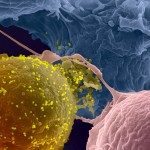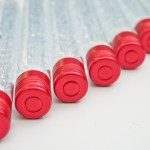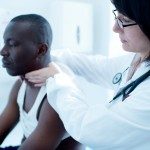Lien vers Pubmed [PMID] – 32747185
Lien DOI – S2352-3964(20)30290-510.1016/j.ebiom.2020.102915
EBioMedicine 2020 Sep; 59(): 102915
The serologic response of individuals with mild forms of SARS-CoV-2 infection is poorly characterized.Hospital staff who had recovered from mild forms of PCR-confirmed SARS-CoV-2 infection were tested for anti-SARS-CoV-2 antibodies using two assays: a rapid immunodiagnostic test (99.4% specificity) and the S-Flow assay (~99% specificity). The neutralizing activity of the sera was tested with a pseudovirus-based assay.Of 162 hospital staff who participated in the investigation, 160 reported SARS-CoV-2 infection that had not required hospital admission and were included in these analyses. The median time from symptom onset to blood sample collection was 24 days (IQR: 21-28, range 13-39). The rapid immunodiagnostic test detected antibodies in 153 (95.6%) of the samples and the S-Flow assay in 159 (99.4%), failing to detect antibodies in one sample collected 18 days after symptom onset (the rapid test did not detect antibodies in that patient). Neutralizing antibodies (NAbs) were detected in 79%, 92% and 98% of samples collected 13-20, 21-27 and 28-41 days after symptom onset, respectively (P = 0.02).Antibodies against SARS-CoV-2 were detected in virtually all hospital staff sampled from 13 days after the onset of COVID-19 symptoms. This finding supports the use of serologic testing for the diagnosis of individuals who have recovered from SARS-CoV-2 infection. The neutralizing activity of the antibodies increased overtime. Future studies will help assess the persistence of the humoral response and its associated neutralization capacity in recovered patients.The funders had no role in study design, data collection, interpretation, or the decision to submit the work for publication.











